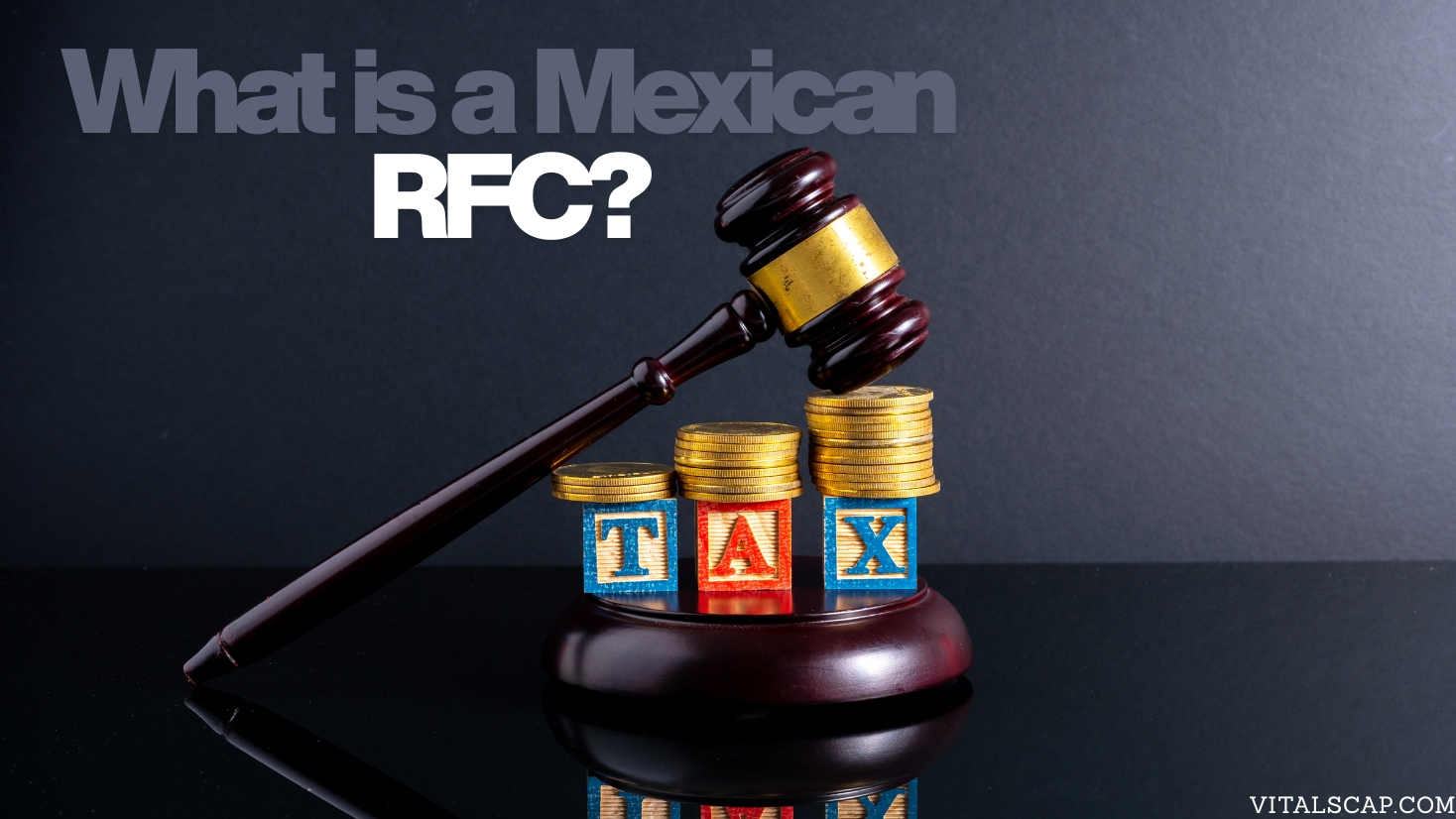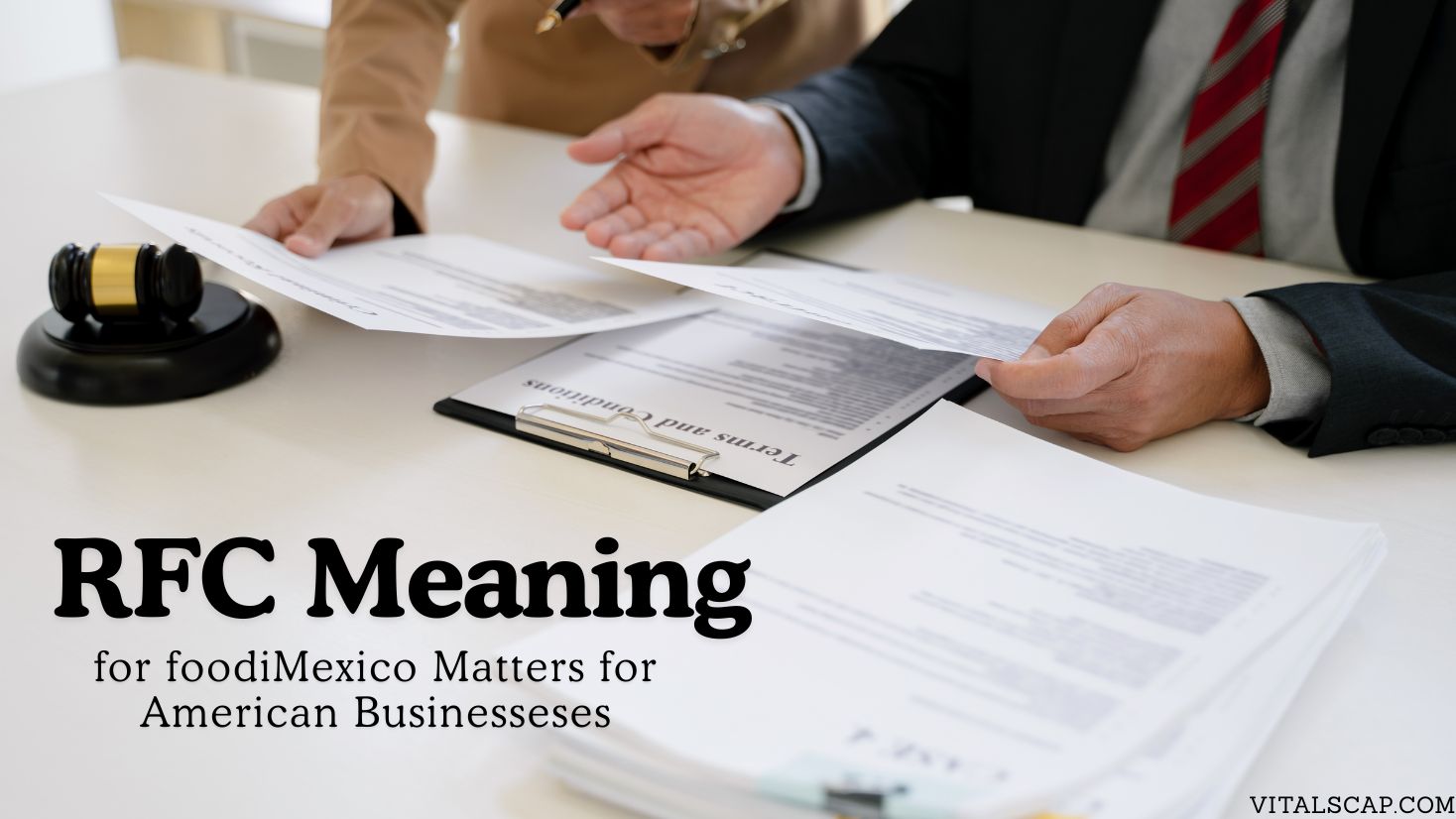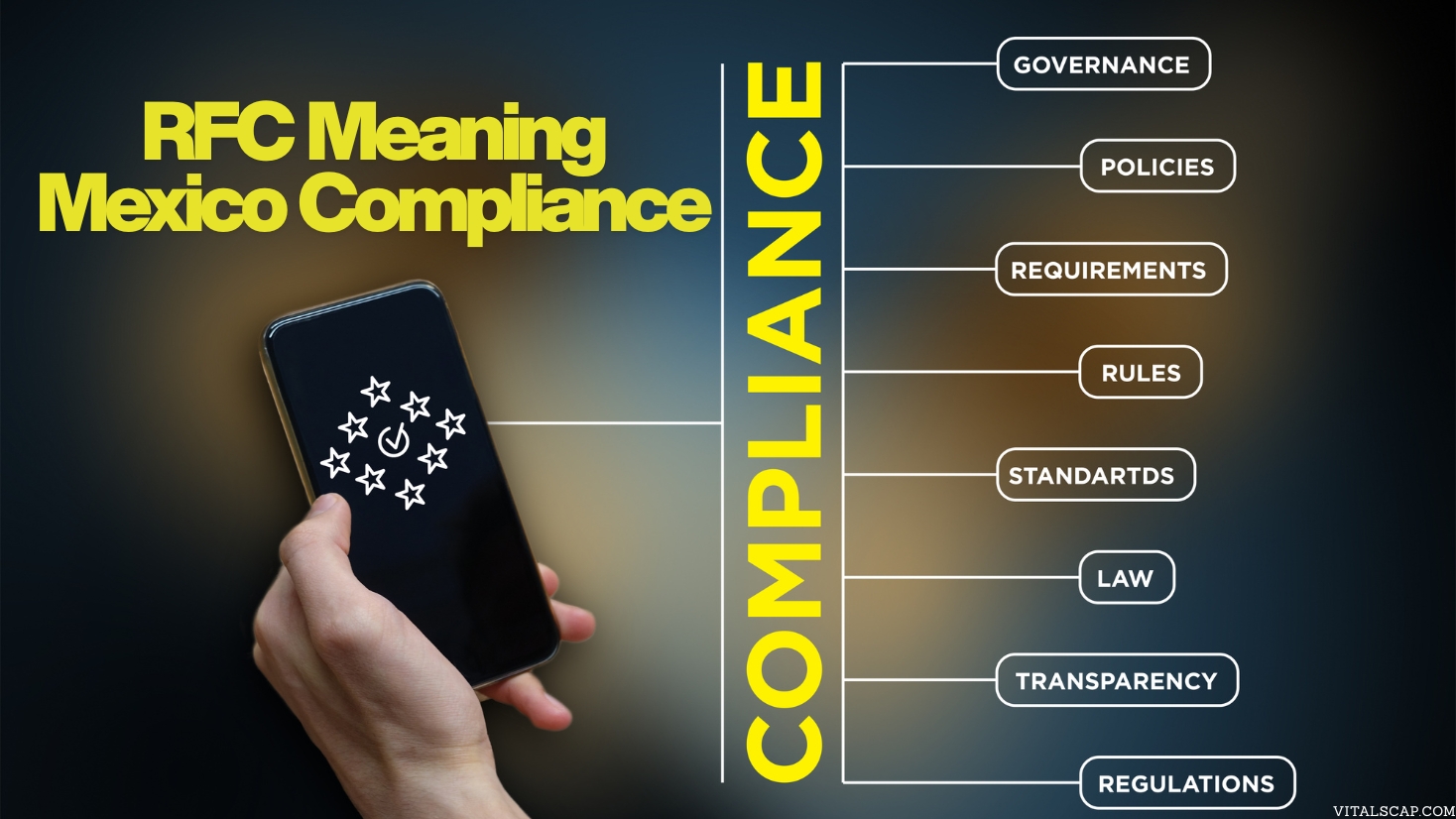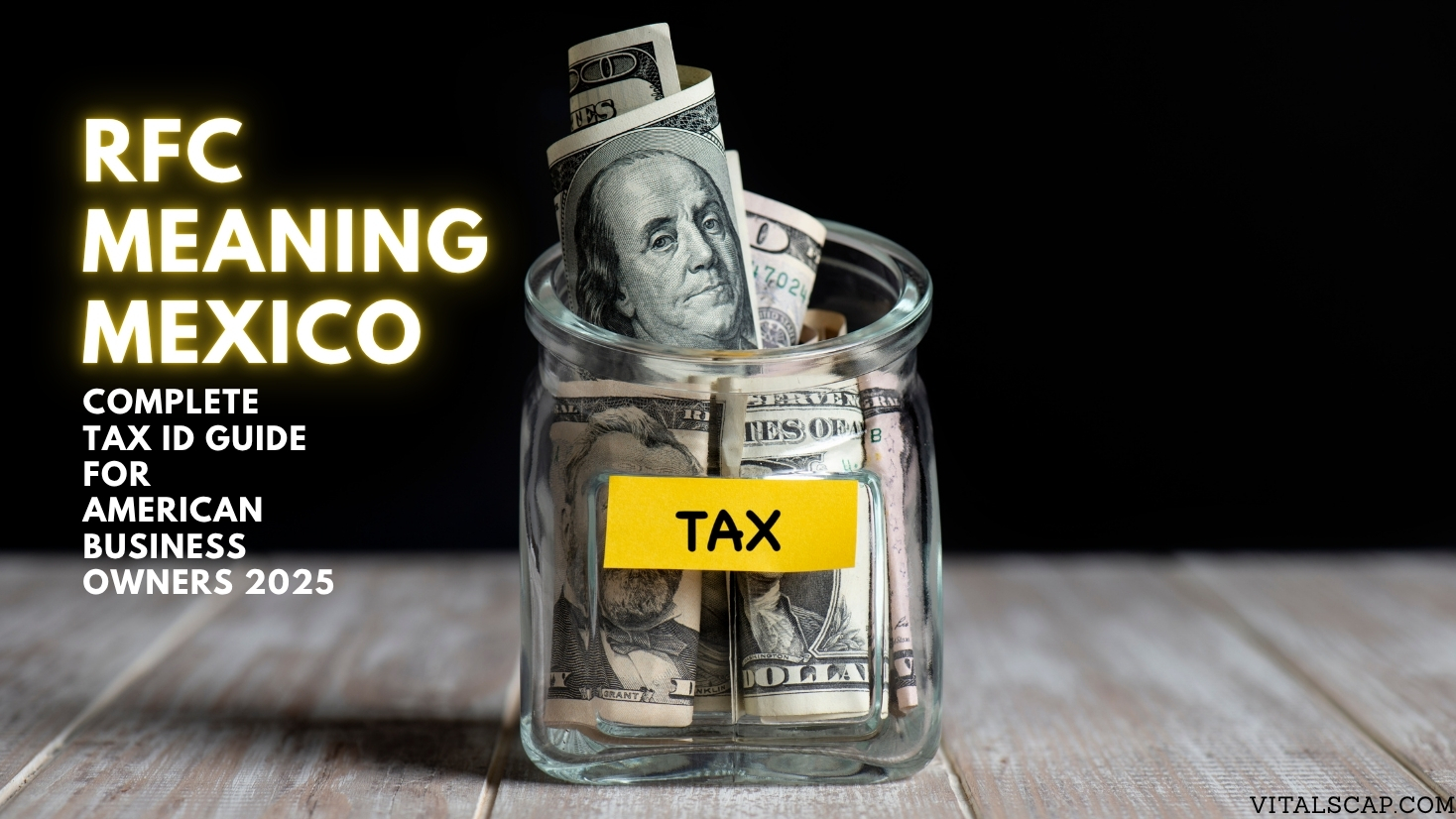Navigating Mexico’s business landscape requires understanding the RFC system in Mexico. This essential taxpayer identification framework serves as your gateway to the country’s $2.7 trillion economy.
The Registro Federal de Contribuyentes represents more than bureaucratic paperwork-it’s your business passport to legitimate operations south of the border. Without proper fiscal ID registration, American entrepreneurs face locked doors where opportunities should flourish.
Your Complete Guide for American Businesses
Understanding Mexico’s tax infrastructure begins with mastering the RFC code system. This comprehensive Mexican identification number framework governs every legitimate business transaction within the country’s borders.
Tax compliance experts consistently emphasize RFC’s critical importance for American business expansion. The Mexican tax system demands proper documentation before allowing foreign entities to operate legally within its jurisdiction.
What is a Mexican RFC?

The RFC, meaning Mexico, translates directly to Federal Taxpayers Registry. This Mexican identification number serves as your official recognition within the country’s tax registration system. Every legal entity and individual taxpayer must obtain RFC status before conducting legitimate business activities.
Professor Maria Rodriguez from Universidad Nacional Autónoma de México explains: “The RFC system represents Mexico’s modernization of tax collection, creating transparency and accountability that benefits both taxpayers and the government.”
Unlike America’s EIN system, Mexico’s fiscal ID incorporates personal information directly into the identification code structure. This integration creates a more comprehensive taxpayer identification approach that reduces fraud and improves compliance tracking.
| RFC Type | Code Length | Purpose | Required For |
| Persona Física | 13 characters | Individual taxpayers | Personal business, freelancing |
| Persona Moral | 12 characters | Legal entities | Corporations, partnerships |
How is the Mexican RFC Used?
The RFC code enables essential business functions across multiple sectors. Digital invoice requirements mandate proper taxpayer identification for every commercial transaction exceeding specific thresholds.
Banking institutions require fiscal ID verification before establishing corporate accounts. Import/export operations depend entirely on valid Mexican government documentation, including RFC registration.
Key RFC Applications:
- CFDI invoice generation for tax compliance
- Banking relationship establishment
- Real estate transaction authorization
- Government contract eligibility
- Cross-border trade documentation
What is the ‘SAT’ in Mexico?
SAT (Servicio de Administración Tributaria) serves as Mexico’s counterpart to the United States’ IRS. This Mexican governmental body manages all revenue enrollment procedures and enforces adherence requirements across the nation.
The organization’s authority reaches beyond basic enrolment services. SAT performs examinations, imposes sanctions, and maintains extensive records monitoring every registered contributor within the framework.
Current legislative modifications have enhanced SAT’s regulatory powers, especially concerning international business ventures and transnational monetary transactions.
RFC Format Breakdown
Mexico’s RFC code framework incorporates embedded data that discloses contributor particulars and enrollment background. Comprehending this arrangement assists enterprises in confirming client details and guaranteeing adherence precision.
The Mexican revenue system engineered RFC patterns to avoid redundancy and facilitate simple validation through computerized networks countrywide.
What is the RFC Format for Businesses?
Legal entity RFC codes follow a 12-character structure containing company registration details and verification elements. Business taxpayer identification incorporates founding dates and validation digits for security purposes.
Corporate RFC Structure:
- First 3 characters: Company name abbreviation
- Next 6 digits: Registration date (YYMMDD)
- Final 3 characters: Homoclave and verification digit
RFC Mexico example for corporations: ABC060315AB1 represents a company founded on March 15, 2006. This Mexican identification number format enables quick verification and prevents fraudulent registrations.
What is the RFC Format for Individuals?
Individual taxpayer RFC codes utilize 13 characters incorporating personal information for identification purposes. The fiscal ID structure includes birth dates and name elements creating unique Mexico tax ID number combinations.
Personal RFC breakdown:
- First 4 characters: Name combination (surname + first name initials)
- Next 6 digits: Birth date (YYMMDD)
- Final 3 characters: Birthplace code and verification digit
This comprehensive taxpayer identification approach reduces identity fraud while enabling efficient tax administration across Mexico’s diverse population.
RFC Meaning Mexico Matters for American Businesses

Mexico represents America’s third-largest trading partner with over $500 billion in annual commerce. This massive economic relationship demands proper tax compliance from participating businesses.
Legal compliance through fiscal ID registration provides competitive advantages that non-compliant businesses cannot access. The Mexican government agency oversight ensures that only properly registered entities receive full market participation privileges.
Market Access Imperatives
Tax registration opens doors to Mexico’s expanding consumer markets and industrial opportunities. Without proper RFC code documentation, American businesses remain excluded from legitimate commercial channels.
Government contracts, banking relationships, and major corporate partnerships require verified taxpayer identification before negotiations can commence.
What Types of RFC Are There?
Mexico’s tax registration system recognizes distinct taxpayer categories serving different business purposes. Individual taxpayer classifications differ significantly from legal entity requirements in documentation and compliance obligations.
RFC Categories:
- Persona Física: Individual professionals and small business owners
- Persona Moral: Corporations, partnerships, and formal business entities
- Special Regimes: Specific industry classifications with unique requirements
Operational Necessities Requiring RFC
Banking institutions mandate fiscal ID verification for account establishment and transaction processing. CFDI invoice generation requires valid RFC code integration for legal compliance.
Cross-border trade operations depend entirely on proper Mexican government documentation, including verified tax registration status.
E-commerce Explosion Opportunities
Mexico’s $28 billion online market presents enormous opportunities for American businesses with proper RFC Mexico online presence. Platform integration demands compliant taxpayer identification for payment processing and tax reporting.
Dr. Carlos Mendez, International Trade Economist: “E-commerce growth in Mexico requires proper tax infrastructure, making RFC registration essential for American companies seeking digital market penetration.”
RFC E-invoicing and Validation Systems
Mexico’s mandatory digital invoice system revolutionized business documentation and tax compliance. CFDI (Comprobante Fiscal Digital por Internet) requirements demand proper RFC code integration for legal transactions.
The Mexican tax system strictly enforces electronic invoicing regulations, creating substantial penalties for non-compliant businesses operating within the country.
Why is the RFC Number Relevant for E-invoicing?
CFDI generation requires valid taxpayer identification for both invoice issuers and recipients. The fiscal ID verification ensures tax authorities can track commercial transactions and prevent evasion.
Invoice rejection occurs automatically when RFC code validation fails during submission processes. These technical requirements protect the Mexican government’s documentation integrity while enabling efficient tax collection.
E-invoicing Requirements:
- Valid issuer and recipient RFC codes
- SAT digital certification
- Real-time validation systems
- Standardized XML formatting
How to Validate the Final Customer RFC Details
Mexico RFC number lookup tools enable businesses to verify customer tax registration status before transaction completion. SAT provides official validation platforms, preventing fraudulent documentation usage.
Customer database maintenance requires regular RFC code verification, ensuring continued compliance with Mexican tax system requirements.
| Validation Tool | Access Level | Cost | Features |
| SAT Portal | Public | Free | Basic verification |
| Third-party APIs | Commercial | Paid | Bulk validation |
| Professional Software | Enterprise | Subscription | Integration capabilities |
What is a Constancia de Situación Fiscal?
This tax status certificate provides official verification of taxpayer compliance history and current standing within the Mexican tax system. American businesses often require this Mexican government documentation for banking relationships and major contracts.
The certificate contains detailed fiscal ID information including registration dates, authorized activities, and compliance status updates.
More Post: What is the Opposite Meaning of Still? Complete Guide 2025 to Multiple Antonyms
RFC Meaning Mexico Registration Process
Obtaining Mexican identification number status requires careful preparation and documentation assembly. The tax registration process involves multiple verification steps ensuring applicant legitimacy and compliance capability.
SAT (Servicio de Administración Tributaria) maintains strict application protocols preventing fraudulent registrations while facilitating legitimate business establishment.
Eligibility Requirements for Americans
Taxpayer registration eligibility depends on residency status and business structure classification. Tourist visa holders face significant limitations compared to temporary or permanent residents seeking fiscal ID status.
Corporate legal entity structures must demonstrate legitimate business purposes and comply with foreign investment regulations before RFC code approval.
How to Get a Mexican RFC Number
Mexican government agency requirements include specific documentation proving identity, address, and business legitimacy. Apostille certification ensures international document acceptance within Mexico’s legal framework.
Required Documentation:
- Valid passport with appropriate visa status
- Proof of Mexican address (utility bills, lease agreements)
- Business formation documents (if applicable)
- Apostilled certificates for foreign documentation
Can I Get a Mexican RFC Online?
RFC Mexico online applications remain limited to specific circumstances and taxpayer categories. Most American applicants must complete registration through SAT office appointments requiring personal attendance.
Appointment availability varies significantly by region, with major business centers experiencing longer waiting periods than smaller cities.
Registration Timeline:
- Application submission: 1-2 hours
- Document review: 5-10 business days
- Approval notification: 2-3 weeks
- Certificate delivery: 1-2 weeks additional
Professional Service Alternatives for RFC Mexico Application
Tax compliance professionals provide valuable navigation assistance through complex registration procedures. Mexican accounting firms understand local requirements and maintain established SAT relationships, facilitating smoother processing.
Legal representation becomes particularly important for complex corporate structures or businesses facing documentation challenges during the application process.
RFC Meaning Mexico Compliance

Tax compliance violations carry substantial financial and operational penalties within Mexico’s regulatory framework. Understanding common pitfalls helps American businesses maintain good standing with Mexican government agency oversight.
Recent enforcement initiatives have increased penalty severity, making compliance education essential for foreign business operators.
Frequent US Enterprise Obstacles
Billing document creation mistakes result in organizations facing substantial fines when RFC identifier implementation doesn’t satisfy CFDI standards. Financial institution relationship difficulties emerge from incorrect tax registration number authentication, ruining crucial commercial agreements.
Trade paperwork errors generate expensive postponements when contributor identification doesn’t pass verification throughout border control operations.
Mexico RFC Number Validation
Annual tax filing requirements continue regardless of business activity levels within Mexico. CFDI compliance mandates require constant attention to changing regulations and technical specifications.
Status updates become necessary when business operations change significantly or expansion occurs into new activity sectors.
Compliance Calendar:
- Monthly: CFDI submission deadlines
- Quarterly: Advance tax payments
- Annually: Comprehensive tax returns
- As needed: Status change notifications
Financial Consequences of Tax Registration Violations
SAT penalty calculations escalate rapidly for continued non-compliance situations. Business closure authority provides Mexican government agency enforcement power over serious violations.
Criminal liability thresholds exist for intentional tax evasion or fraudulent documentation usage affecting individual taxpayer and legal entity classifications equally.
RFC Meaning Mexico Success Stories
American businesses achieving Mexican market success consistently credit proper RFC code acquisition as foundational to their expansion strategies. Tax registration compliance opened doors that remained closed to competitors lacking proper documentation.
These success examples demonstrate how fiscal ID registration transforms business opportunities from impossible dreams into profitable realities.
Manufacturing Expansion Case Study
Acme Manufacturing invested $50 million in Tijuana facilities after completing taxpayer identification requirements. Proper Mexican tax system navigation enabled streamlined operations and substantial cost savings.
The company’s legal entity registration facilitated government incentive programs worth $12 million in tax credits and infrastructure support.
E-commerce Breakthrough Example
Digital Dynamics achieved 300% revenue growth within eighteen months of obtaining proper fiscal ID status for Mexican operations. Amazon Mexico seller certification required valid RFC code documentation before platform access approval.
Competitive advantages emerged from compliant CFDI generation capabilities enabling B2B sales previously impossible without proper tax registration status.
Real Estate Investment Victory
Property Portfolio LLC successfully acquired $25 million in beachfront developments after completing taxpayer registration procedures. Mexican government documentation requirements initially seemed overwhelming but professional guidance simplified the process significantly.
Legal protection benefits through proper tax compliance prevented potential seizure risks affecting non-compliant foreign investors in similar markets.
More Post: What Is the Medical Meaning for DTF? Complete Guide to Medical DTF Terminology
RFC Meaning Mexico Future Trends
Mexican tax system modernization continues advancing through technology integration and regulatory improvements. Digital transformation initiatives promise streamlined processes while maintaining security and compliance standards.
Cross-border business facilitation represents priority development areas supporting increased American investment and trade relationships.
Digital Transformation Impact on Mexican Tax System
Blockchain integration possibilities offer enhanced fiscal ID verification security preventing fraudulent documentation usage. AI-powered compliance tools will automate routine verification processes while improving accuracy.
Automation advances in tax registration procedures should reduce processing times while maintaining thorough verification standards.
RFC Meaning Mexico Action Plan
Successful tax registration requires systematic preparation and professional guidance for optimal results. Business readiness evaluation identifies documentation gaps before application submission preventing costly delays.
Professional team assembly ensures comprehensive support throughout the complex registration and ongoing compliance requirements.
Immediate Assessment Checklist
Documentation review reveals preparation requirements specific to your business structure and operational plans. Gap analysis identifies missing elements requiring attention before SAT application submission.
Timeline planning coordinates multiple process elements ensuring efficient progression through taxpayer identification requirements.
Timeline Optimization Strategy
Fast-track options exist for businesses meeting specific criteria and maintaining complete documentation packages. Parallel processing approaches can reduce the total timeline while managing multiple requirement elements simultaneously.
Risk mitigation protocols prevent common delays while ensuring compliance accuracy throughout the fiscal ID acquisition process.
Frequently Asked Questions
What is RFC used for in Mexico?
RFC enables tax compliance, digital invoicing, banking access, import/export activities, real estate transactions, and government contract eligibility through Mexican identification number verification.
What is the RFC used for?
The RFC serves as Mexico’s primary taxpayer identification within the Mexican tax system, allowing legal entity operations, CFDI generation, and fiscal ID verification.
What is the ‘SAT’ in Mexico?
SAT (Servicio de Administración Tributaria) is Mexico’s tax collection agency, equivalent to America’s IRS, responsible for RFC registration and Mexican government documentation oversight.
What types of RFC are there?
Two main types exist: Persona Física (13-digit individual taxpayer RFC) and Persona Moral (12-digit legal entity RFC) for different tax registration categories.
What is a RFC in Mexico?
RFC (Registro Federal de Contribuyentes) is Mexico’s Federal Taxpayers Registry, a unique fiscal ID required for all tax compliance and business activities.
Conclusion
Understanding RFC meaning Mexico transforms American business operations south of the border. This essential taxpayer identification system opens doors to Mexico’s $2.7 trillion economy, enabling digital invoicing, banking access, and legal compliance through proper fiscal ID registration.
Whether you’re expanding manufacturing, launching e-commerce, or investing in real estate, RFC registration via the Mexican tax system isn’t optional-t’s your gateway to competitive advantage.
More Post:

Passionate about innovation and growth. Dedicated to managing, optimizing, and creating seamless experiences while supporting diverse content and users with professionalism and clarity every day.








